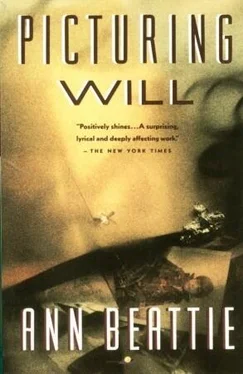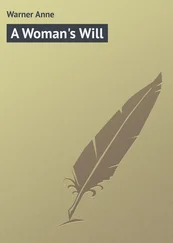Ann Beattie
Picturing Will
At night, when Jody had trouble sleeping, Wayne seemed, in his sneaky way, always to be there in the shadows, his smooth voice still a whispered undertone of the breeze. They had divorced years ago, and except for talking to him on the phone periodically to arrange for Will’s visits to Florida, she had no contact with him at all. His image had become blurry. She was confused about whether his gaze seemed more intense when he wore his glasses or contact lenses. She could remember that he was tall, but not what it felt like to stand beside him, let alone to be held in his arms. She could remember the pattern of the plaid shirts he wore in the winter, but not if he had tucked them in or left the shirttails hanging out. The only absolutely distinct memory she had — whether she was awake or during the many times she dreamed it — was of the day they married. They had gone to a justice of the peace. His brother, and a girlfriend with whom she had since lost touch, had been the only witnesses. After the ceremony, she and Wayne had walked out the door with an arm around each other’s waist and made a happy race for the car (his brother had overtaken them and managed to throw open the car door, bowing as if opening the door of a gilded carriage). There had been a split second when she looked down to where Wayne’s fingers curved around her waist and suddenly saw their future as clearly as anyone looking into a crystal ball. His fingers were perfectly placed, but you could see how lightly their touch registered. Either the thing he touched was ephemeral, or his touch made it so; this many years later, she still wondered which. But in that instant, she had realized that she would slip through Wayne’s fingers.
She had known him for only a few months before they married — months during which there was such frantic activity that by the time he proposed, Jody had begun to think that marriage must have been what they were headed for from the start. Their eyes had met when they passed each other, walking down a crowded street. Only a few steps beyond him, her heel had snapped. He had been looking over his shoulder — giving her the evil eye, she now believed — and when she stopped to take off her shoe, she was stopping for years. Years in which she’d move to the country, marry, and have Wayne’s child. The thin little leather heel she held was the shed tail of a captured lizard.
She should have seen through it — the bullying and bravado — but the bullying was always accompanied by charming coercions (so many flowers he couldn’t afford), and the bravado seemed at the time like real intensity. Wayne had always been about to create a life for himself, and for her. He borrowed money from his brother to go to school, then quit. He railed against city life — everything from the cracks in the sidewalk that caught the tip of your heel to the political wheelingc and dealing that determined the city’s character. For Wayne, the plaster gargoyles on the buildings were always blowing an ill wind, but the night sounds of the country were the music of the spheres. They lived in a tiny house on a farm, where she looked after the horses, and Wayne read books — not to expand his horizons, as he said, but to reinforce the limits of what he believed. His brilliance, he claimed, would someday light up the world, but in the meantime he rewired lamps for a living and worked as the odd-jobs man on the property. And for quite a while she had been entranced with him, and with that life. Without knowing much about him — without even knowing, until they applied for a marriage license, that he had been married before, without ever pausing to consider how strange it was that he had no friends and that his own brother was mystified that he had been asked to attend the wedding, without any knowledge beyond what she saw in his eyes and what she felt when she touched his body — she was willing to leave behind worried friends, argue with and finally stop speaking to her parents, and view her own ambition with skepticism. Though it now seemed impossible that she had ever been under his spell, she continued to feel chastened by the experience. Still disturbed enough to roam the house at night, checking like some crazy worried lady to make sure torn-up love letters hadn’t reappeared as untouched sheets of stationery, that the roses hadn’t taken root to bloom again at the bottom of the trash.
Wayne left without leaving a note, when roses he had given her were only slightly wilted in the vase. She had awakened to Will’s cries one morning in a house that felt intensely empty. She couldn’t convince herself that he had gone out to fork hay for the horses. Or that he had decided to call it quits with his attempts to repair the car and had taken it to Smoky’s garage. The horses were quiet, and the car was gone, and on the table by the door was his house key. Outside, dawn was breaking And she had Will in her arms — Will, who smelled of the night’s sleep: that mixture of damp diaper and Johnson’s baby shampoo and sweat and powder that for years she thought she would never get out of her lungs. She had stood there by the closed door as if it were transparent and she could look out and see Wayne’s car in the distance. Because even before she saw the key on the table, she knew that he was gone. He was gone and at the end of the month she and Will would be gone too, with the money she had borrowed from her father, whose note was so kind that she had crumpled it and thrown it away before finishing it. The gardener’s wife had put a picnic basket — as if they were going for a day’s pleasant outing! — in the backseat of the old Buick she had bought with her father’s money. She drove an hour farther south and spent the next two weeks at a girlfriend’s house in Charlottesville — a house that was miraculously empty, because the girlfriend had put it on the market and was on her way to join her boyfriend in New Orleans. It was a lie to think that photography and good luck had saved her, but it was still too painful to think that her father’s small savings account had been the factor — or even that her girlfriend’s generosity in leaving her not only the house but a series of friends she asked to call Jody (one of whom had invited her to the party where she met Mel) had foiled Wayne’s plans to ruin her life.
Now she lived with her son — their son — in the same small Southern town she had driven to almost randomly, and she had gone from being a clerk in a camera store to working as a much-in-demand wedding photographer. Prowling through the house at night, a drink in hand for consolation, walking quietly in her stocking feet so as not to awaken Will, she was often mesmerized by what she had created. Not that it was particularly lovely or even expressive of who she was, just that it existed at all: the tripods and strobes and drop cloths, the entire dining room transformed into a photographer’s studio.
She would feel her way around that room in the darkness: the pegs next to the fireplace, from which she had hung antique wedding dresses and straw hats; the mantel, where her lenses were lined up like soldiers; the built-in corner cabinet with her cameras inside and her light meter dangling from the front latch; the window seat Duncan had extended so she could lower the ivory-colored velvet curtain and photograph brides-to-be sitting prettily in the little niche; the chair bought at the Salvation Army and reupholstered (no modern chairs had such wide seat cushions) so the bride and groom could be shot sitting together without looking like Edgar Bergen and Charlie McCarthy. Was it possible that at the end of the day doctors turned out the fluorescent lights in their offices and ran their hands over their stethoscopes and tongue depressors and syringes and felt perplexed at the unfamiliarity of those cold items and plastic packages? Did bakers take a secret finger-swipe at perfectly scalloped icing, taste it, and then repair the damage with their pastry tubes? Didn’t people sometimes hover a bit above their lives, see that they were stranger than they seemed, and then — with their hearts fluttering — answer the ringing phone, say the perfunctory good night, continue on the same path?
Читать дальше












